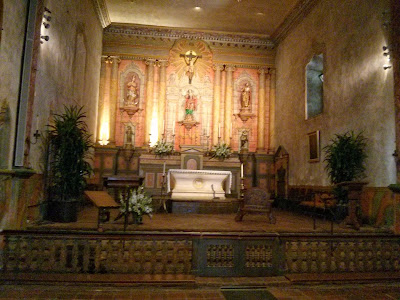Worship and Divine Action
Over the recent past we've heard a lot about worship wars. Should worship follow traditional lines or should be more contemporary? In answering this question we often raise the question of authenticity. Which form of worship is most expressive of my faith? In asking the question this way, worship is seen as something we do. We are the subject of worship. But what if God is the subject? What if worship that is true and reflective of the Spirit isn't something we do, but is something that is done to us.
I'm reading James K. A. Smith's book You Are What You Love: The Spiritual Power of Habit {Smith will be speaking on this subject next fall at Rochester College's Streaming Conference.] In the book, which I'm only about a third of the way through, Smith is arguing that we are often formed by secular liturgies, including consumerism. He believes that worship can offer an alternative liturgy, a spiritual liturgy, that can form us spiritually. Worship that focuses on being expressive so as to be "authentic" can often be consumerist and is more about us than God. He writes of historic Christian worship, suggesting they are not just old:
They are rooted in a fundamentally different understanding of what worship is, a fundamentally different paradigm of the primary agent of Christian worship. Instead of the bottom-up emphasis on worship as our expression of devotion and praise, historic Christian worship is rooted in the conviction that God is the primary actor or agent in the worship encounter. Worship works from the top down, you might say. In worship we don't just come to show God our devotion and give him our praise; we are called to worship because in this encounter God (re)makes and molds hearts us top-down. Worship is the arena in which God recalibrates our hearts, reforms our desires, and rehabituates our loves. Worship isn't just something we do; it is where God does something to us. Worship is the heart of discipleship because it is the gymnasium in which God retrains our hearts. [You Are What You Love, p. 77].
The question then becomes -- how do we as church construct worship/liturgy that allows God the freedom to act? What does this involve? Since my tradition gathers at the Table weekly, what does that mean for the we we understand the Table, especially if we practice an open table? What about the music? Prayers? Preaching?

Comments